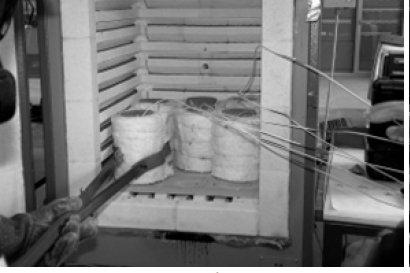1 Msc, University of Pisa, DESTEC – Department of Energy, Systems, Territory and Constructions Engineering, Largo Lucio Lazzarino 1, 56126 Pisa, Italy, marco.andreini@dic.unipi.it
2 PhD, Lecturer, University of Pisa, DESTEC – Department of Energy, Systems, Territory and Constructions Engineering, Largo Lucio Lazzarino 1, 56126 Pisa, Italy, a.defalco@ing.unipi.it
3 PhD, Associate Professor, University of Pisa, DESTEC – Department of Energy, Systems, Territory and Constructions Engineering, Largo Lucio Lazzarino 1, 56126 Pisa, Italy, m.sassu@unipi.it
ABSTRACT
An experimental test procedure on specimens of masonry material (clay, lightweight concrete, aerate autoclaved concrete, mortar) is performed. The aim is to detect the influence of high temperatures on the mechanical properties of different materials. On the basis of the results, the free thermal strain, the load-induced strain and the variation of axial strength are determined; the secant modulus of elasticity is expressed as a function of temperature and some proposals for the stress-strain curves are shown in comparison to those of EN 1996-1-2. The constitutive model obtained by non linear regressions is validated using statistical methods: it can provide a mechanical model for masonry walls subjected to fire actions.
KEYWORDS: fire action, high-temperatures, masonry walls, mechanical model
309.pdf



